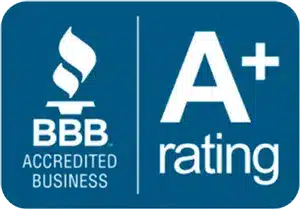Hepatitis C is a viral virus that damages your liver over time and causes inflammation. Worldwide, millions of individuals currently suffer from chronic hepatitis C virus infection. Every year, there are around 17,000 new cases of hepatitis C in the US alone. But hepatitis C is curable, so you don’t have to live with it for the rest of your life, thanks to incredible advances in the latest treatments. At Equality Health, we can assist you whether you have been fighting the virus for some time or have just gotten a diagnosis. If you’re looking for convenient hepatitis C treatment in Oklahoma, look no further than us. Contact us today, and let’s get you started on the treatment process.
Get Comprehensive Hepatitis C Treatments in Chickasha, OK
The primary objective of our hepatitis C treatment at our clinic is to remove the virus from your body. By attaining a sustained virologic response (SVR), we accomplish this. You can achieve SVR when the hepatitis C virus is removed from your bloodstream for an extended period-usually 12 weeks or longer. By doing this, we hope to lower the chance of problems down the road and enhance the long-term health of your liver.
In order to attain sustained viral suppression (SVR), the most common and revolutionary medications for treating hepatitis C are direct-acting antiviral (DAA) drugs. These drugs work by directly targeting the virus and interfering with its ability to replicate in your body. This approach is very successful and can effectively cure an HCV infection in as little as 8 to 12 weeks. We recognize that each person’s experience with Hepatitis C is different and that a number of factors, including the particular strain of the virus, the existence or absence of other liver diseases such as liver scarring or, medically speaking, cirrhosis, and your general health status, affect how your treatment progresses. For this reason, we tailor your treatment plans to your specific needs in order to provide the best possible Hepatitis C cure in Chickasha, OK.
Our Hepatitis C Treatments in Chickasha, OK, Include:
Our medical professionals do an initial examination procedure to understand your particular circumstances before starting your hepatitis C treatment. We will improve the effectiveness of your treatment by tailoring it based on the findings of your test results. Our initial evaluation process for hepatitis C includes:
- Evaluation of Medical History: Initially, we will closely review your medical history, overall health, and status regarding Hepatitis C. Our specialists will inquire about the date of your original diagnosis, any previous treatments you may have had, the drugs you are now taking, and any negative drug responses you may have experienced in the past.
- Tests for Liver Function: Tests for liver function allow us to assess the condition of your liver and the extent of inflammation and damage caused by hepatitis C. In this test, we assess the amount of bilirubin and enzymes in your blood, as well as your liver’s ability to clot blood and produce proteins. We might have to send you for a liver biopsy in extreme cases to determine the degree of liver fibrosis.
- Viral Load Testing: With this test, we can find out how much Hepatitis C virus is in your blood. Basically, viral load testing helps to understand important details about the virus strain you are carrying and how you could react to the treatment. This test helps us determine which hepatitis C treatment choices are best for you and how to customize them.
Regular Monitoring Throughout The Treatment Journey
Testing and treatment for your hepatitis C infection can have a positive effect on your recovery. If you don’t, you risk developing life-threatening conditions like liver cancer, hepatocellular carcinoma, and cirrhosis. We focus on your monitoring routine to ensure a full recovery from the illness. We check in with our patients as part of the monitoring process to learn about their progress. We also make sure your body is reacting to the therapy as intended. Our medical staff performs blood tests during monitoring to determine how your liver is responding to the medication.
Adjust Treatment Plans Based On Individual Responses And Potential Side Effects
In order to complete the treatment plans to cure hepatitis C, we ask you a number of questions about your health, way of life, and symptoms prior to starting any kind of treatment process. You may experience some side effects after being on the medications, like:
- Headache
- Nausea
- Sleep issues
- Fatigue
- Diarrhea
- Weakness
However, you can easily manage these side effects by following the tips below:
- Get a good sleep of about 7-8 hours every day
- Eat a balanced diet after consulting your nutritionist
- Stay active and engage in daily exercise
- Stay hydrated, and make sure you drink a lot of fluids
Antiviral Medications for Hepatitis C
We use the highest-quality direct-acting antiviral (DAA) treatment. Drugs from many classifications are combined to form it. In DAA medication, the following three suggested classes are used:
1. Protease Inhibitors
They stop the hepatitis C virus from spreading throughout the body by inhibiting the function of an enzyme known as protease. Examples of drugs in this class include:
- Simeprevir
- Grazoprevir
2. Polymerase Inhibitors
They integrate themselves into the virus’s RNA chain and stop it from multiplying within your body. This drug functions within your body by obstructing the virus’s NS5A and NS5B regions. Additionally, the drug significantly inhibits HCV replication and eliminates the virus from your body. Some examples of polymerase inhibitors include:
- Sofosbuvir
- Dasabuvir
3. NS5A Inhibitors
They function by lowering the viral load and preventing the virus’s RNA replication within your body. This drug acts against many antiviral agents that are present in your body. Some examples include:
- Ledipasvir
- Elbasvir
Hep C Testing Services
In our Chickasha, Oklahoma, clinic, we provide two distinct test services to our patients in order to treat them for hepatitis C. These two tests are crucial to the diagnosis, management, and therapy of your liver infection.
1. Tests for antibodies
This test is used to determine which antibodies the immune system produces in reaction to the hepatitis C virus. We run antibody tests called enzyme immunoassays (EA) and OraQuick HCV rapid test.
2. Tests for Nucleic Acids (NAT)
This test finds the RNA, the genetic material, of the hepatitis C virus. It can detect the presence of viral replication in you and has high sensitivity. We offer polymerase chain reaction (PCR) and transcription-mediated amplification (TMA) to test for nucleic acids.
Contact us today and schedule an appointment for your treatment process!
Treatment Duration and Response Rates of Hepatitis C Treatment
Hepatitis C treatment takes about 8 to 12 weeks to complete. In some rare instances, the treatment may last up to 24 weeks. However, different factors can influence the treatment duration:
- If you get detected for liver cirrhosis
- Any underlying health conditions
- Past medical history
- The amount of food you eat
- patient’s HCV genotypes
- Medication adherence
When you complete your treatment process, and the hepatitis C virus cannot be detected in your blood, you will be in an SVR (systemic vascular resistance) period. If the SVR state lasts for 12 weeks, it means that you have completely recovered from hepatitis C. Our hepatitis C therapy cures 99% of patients. After this treatment, the infection is unlikely to resurface again.
Follow-Up Care and Checkups for Hep C Treatment
When it comes to treating hepatitis C, adherence is crucial. You can only get SVR and the long-term advantages of better liver function by adhering to the prescribed routine. Always take your prescriptions exactly as directed, and never skip a dosage. Additionally, you can reduce the possibility of side effects and stop the growth of medication resistance through regular adherence.
Throughout your therapy, consider the following advice to ensure adherence:
- Take your medications at the same time every day and establish a routine.
- Set up alerts on your phone to help you remember to take your prescription.
- Seek support and reminders from your loved ones.
- If your schedule might change or you will be traveling, always prepare beforehand.
- Whenever you go out or on vacation, always bring additional dosages.
- For follow-ups, make routine visits to your healthcare professional.
It is important to regularly visit our clinic because we can help you understand the state of your entire body. Then, you can take care of both prevention and treatment based on what you need at this point.
Hepatitis C Prevention and Treatment Aftercare
Even after you are done with your treatment for hepatitis C, follow-up appointments are essential to maintaining the best possible liver function over the long run.
While SVR guarantees the success of your treatment, it does not guarantee that your health issues might not come back in the future. That’s why it’s important to identify any early warning symptoms of liver disease and avoid difficulties down the road.
It is highly crucial to get continuous treatment and monitoring even after you have completed your treatment process.
Furthermore, maintaining a healthy lifestyle is essential to improving your overall well-being. Therefore, you must always eat healthy, do regular exercises, and avoid using drugs and alcohol.
Contact Equality Health for Expert Hepatitis C Treatment in Chickasha, OK.
If you need treatment for hepatitis C, we are here to help. Our mission at Equality Health is to assist our patients in finding the best and most competent hepatitis C treatment in Chickasha, Oklahoma. In addition to appropriate assessment, monitoring, and treatment, we will also offer supportive care and a plan for managing side effects. Reach out to us at (405) 761-2762 to schedule an appointment. Our additional services include HIV testing, HIV treatment, STD testing, STD treatment, & PrEP for HIV prevention in Chickasha, OK.
Frequently Asked Questions (FAQs)
Hepatitis C treatment responds differently to each patient. While some patients might suffer severe side effects, some patients may not suffer any side effects at all. Some common side effects of hepatitis C treatment are:
- Headache
- Nausea
- Fatigue
- Diarrhea or constipation
Absolutely. Insurance covers treatment for hepatitis C in Chickasha, Oklahoma. We bill almost everything, including lab and other treatments, to insurance. We will work with you to provide care even if you do not have insurance. Our clinic may be able to set up insurance with you and cover premiums through our foundation. We will provide you with every option to ensure that you receive the best medical care available at our clinic.
Yes! In Chickasha, Oklahoma, we treat our patients with treatments like direct-acting antivirals (DAA) as a standard course of treatment. It is an antiviral medication that stops the replication cycle of your hepatitis C virus and stops it from replicating. Our medical specialists assess your situation and come up with a treatment plan that works best for you before administering the drug.
Each treatment is different for hepatitis C, considering the unique case of an individual. While the treatment process can take just one session for an individual, it might take several for another. So, the sessions required for hepatitis C treatment can vary from person to person.
The cost of hepatitis C treatment in Chickasha, OK, varies depending on the type of medications that are being used. HEP C Medication can be costly, but our clinic is here to assist you if you do not have insurance to cover the cost through our foundation.



